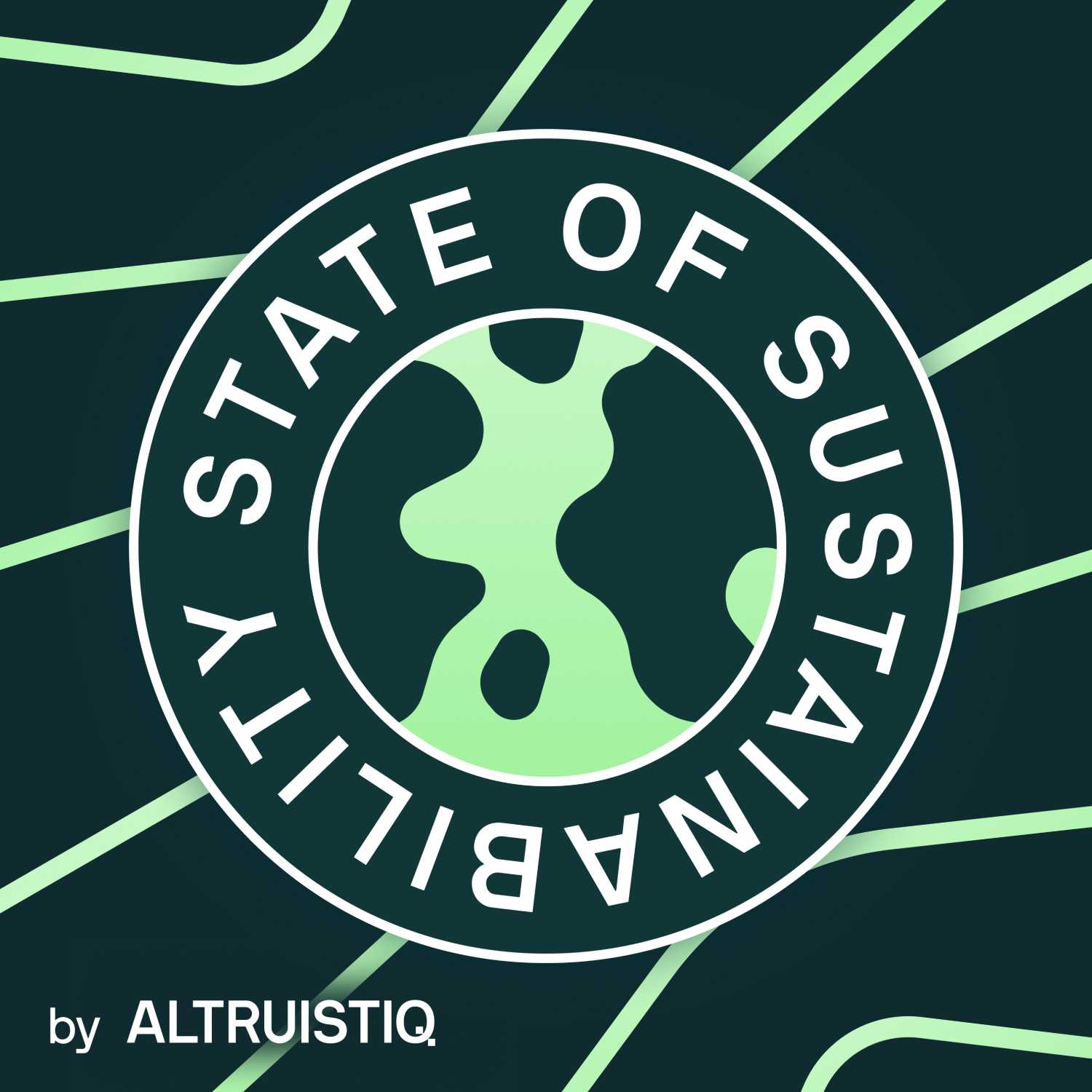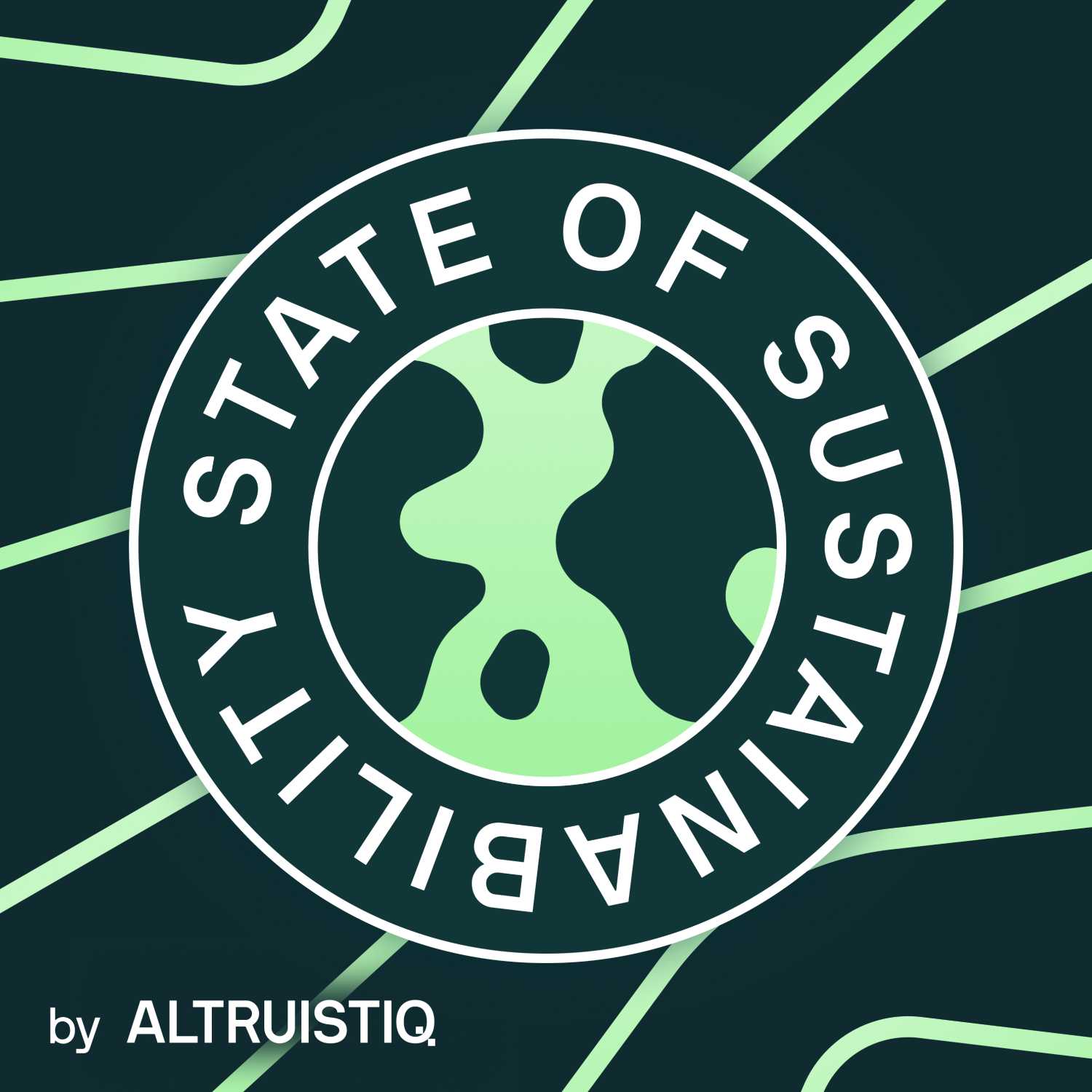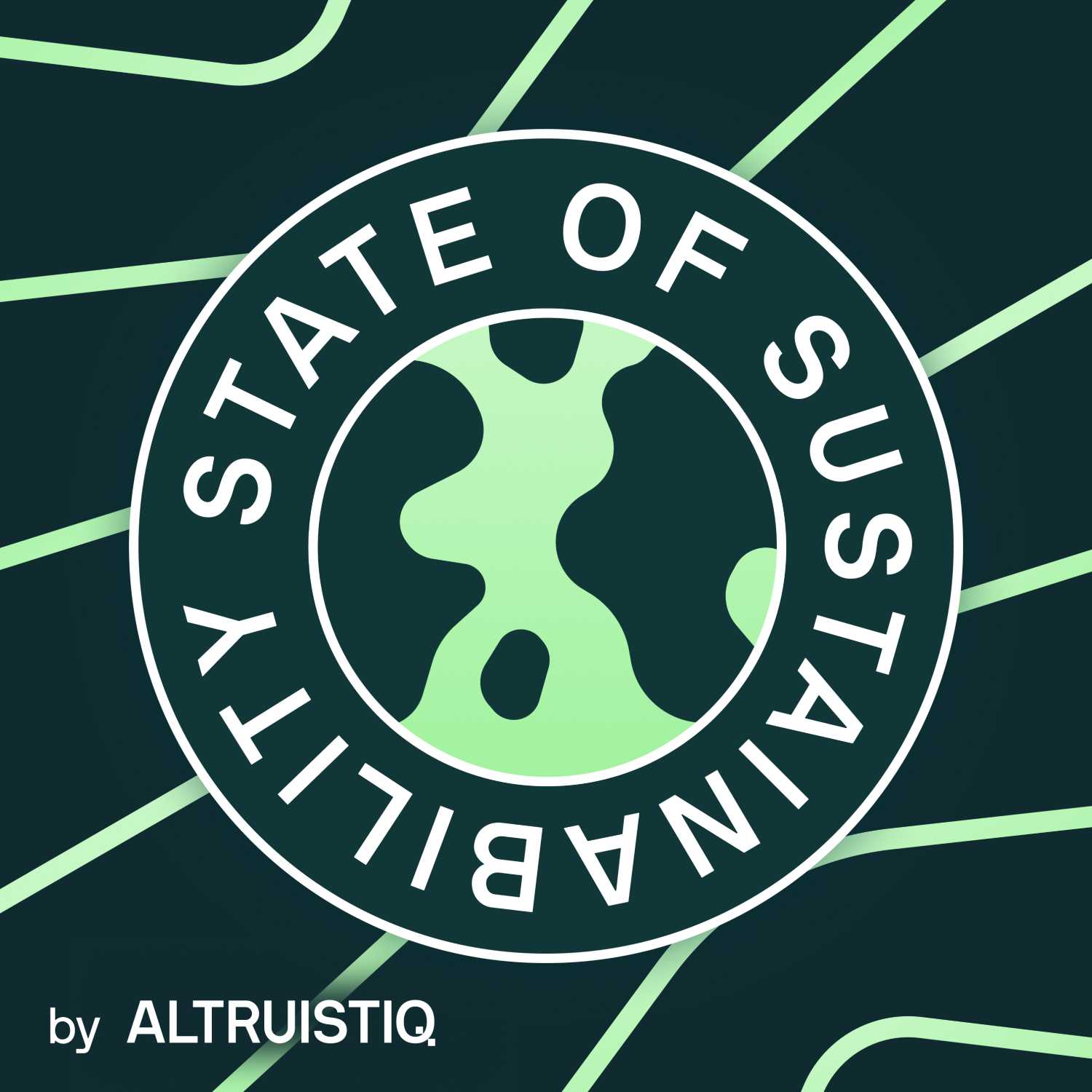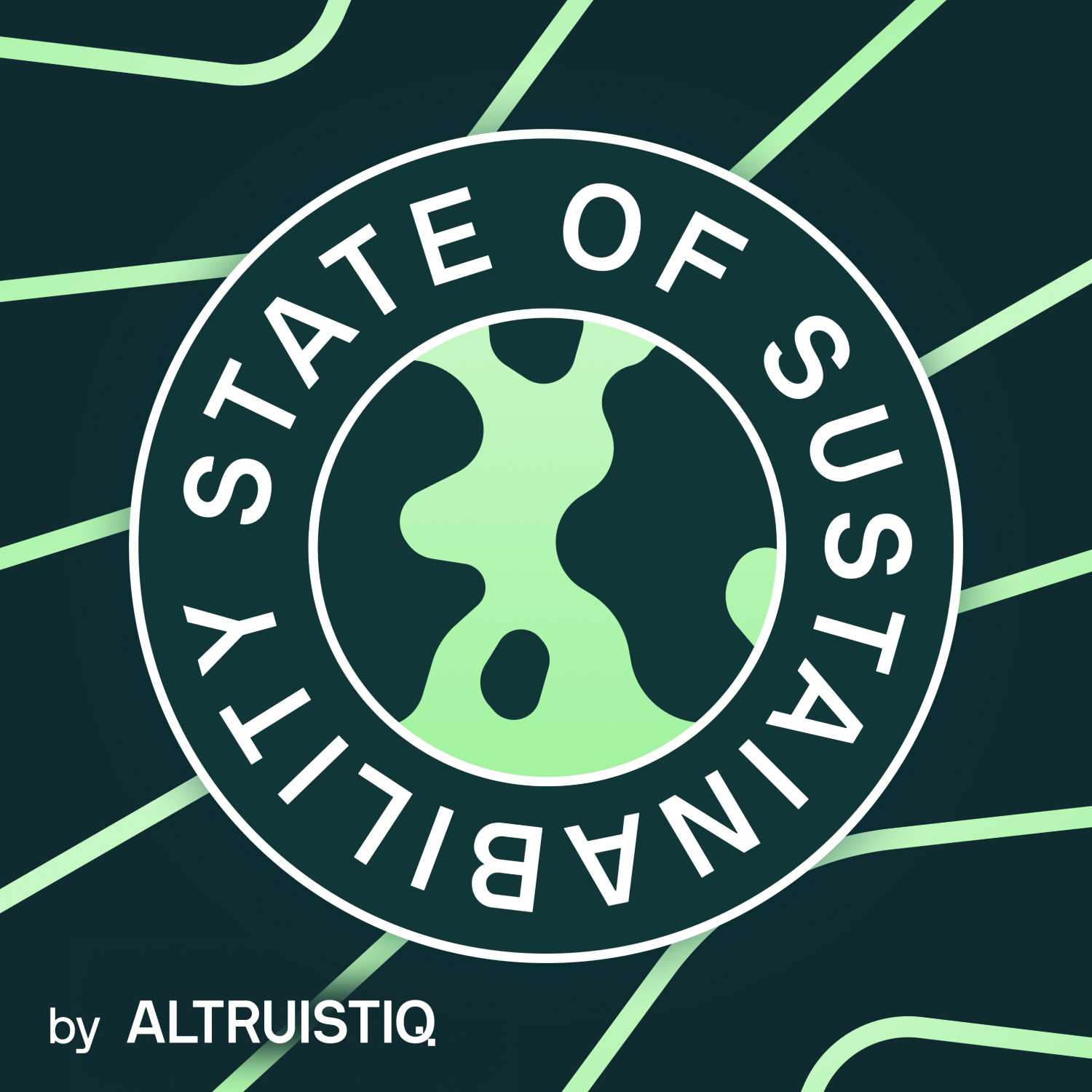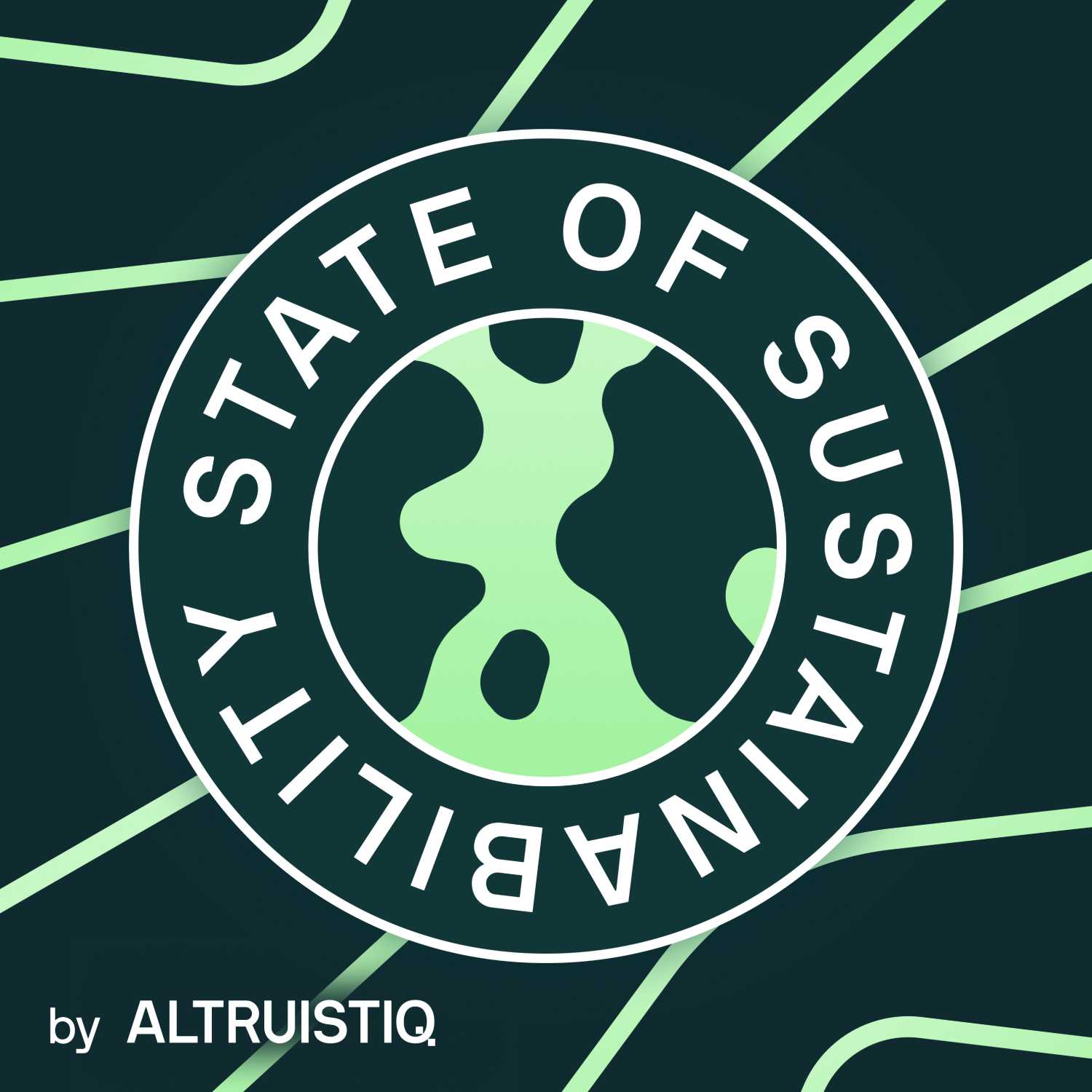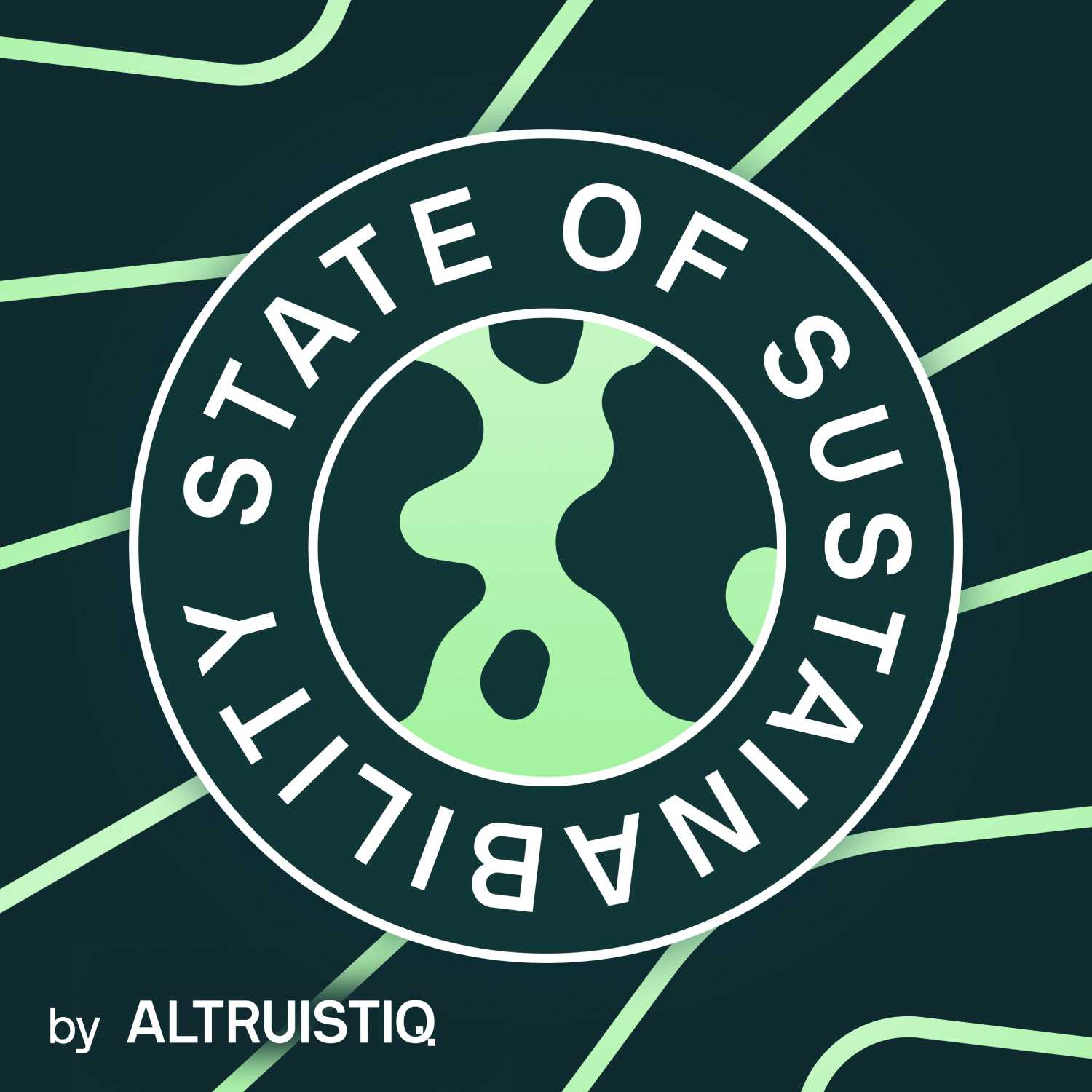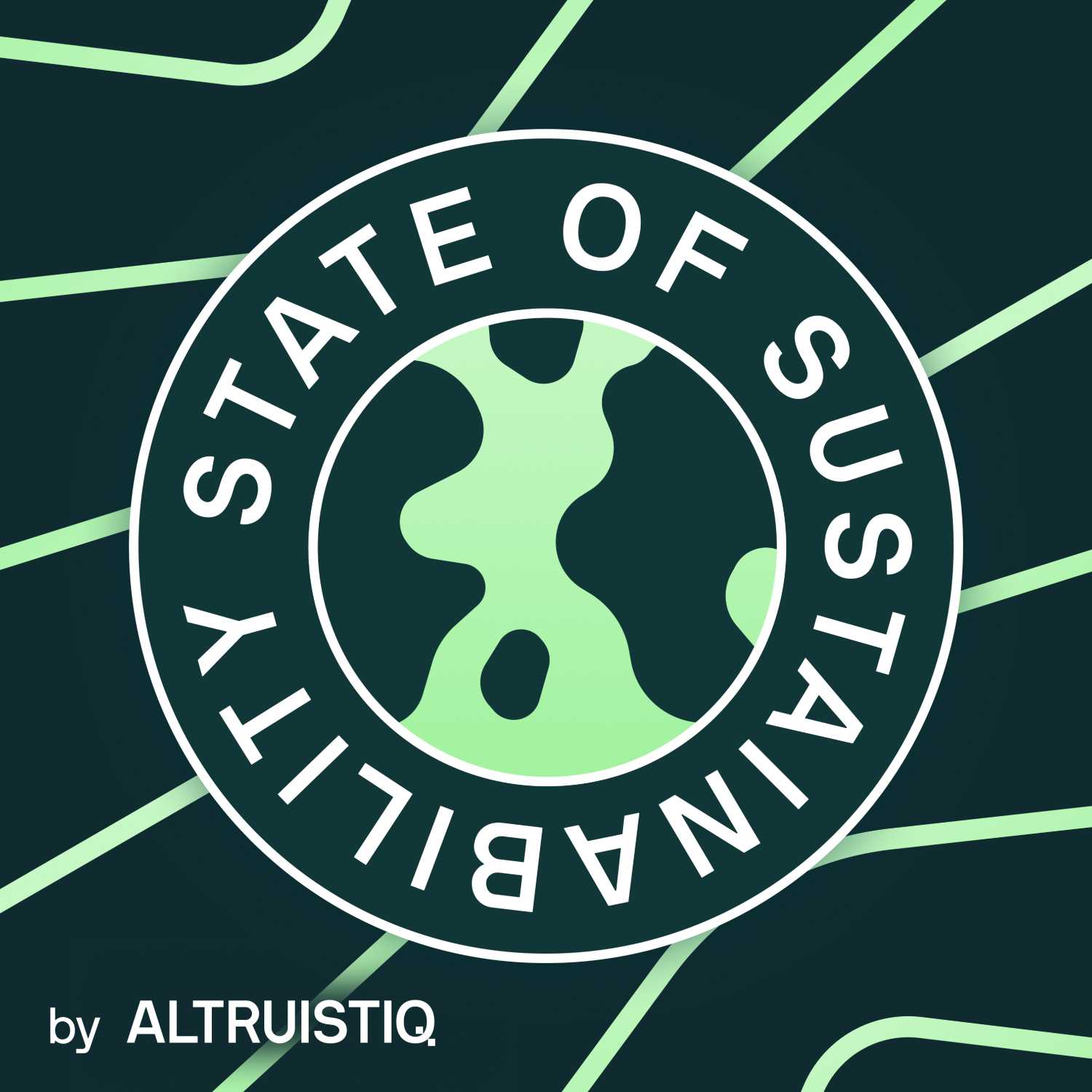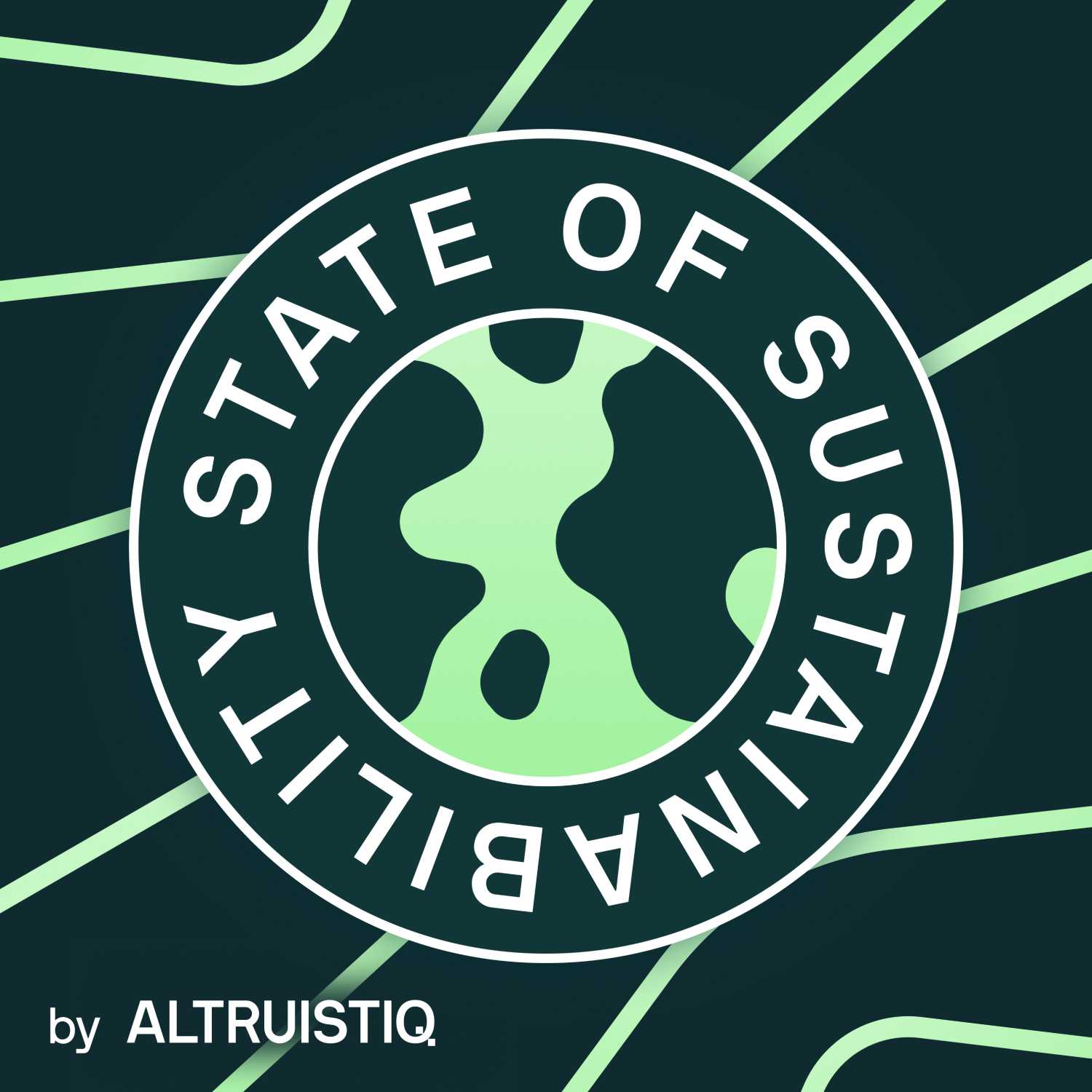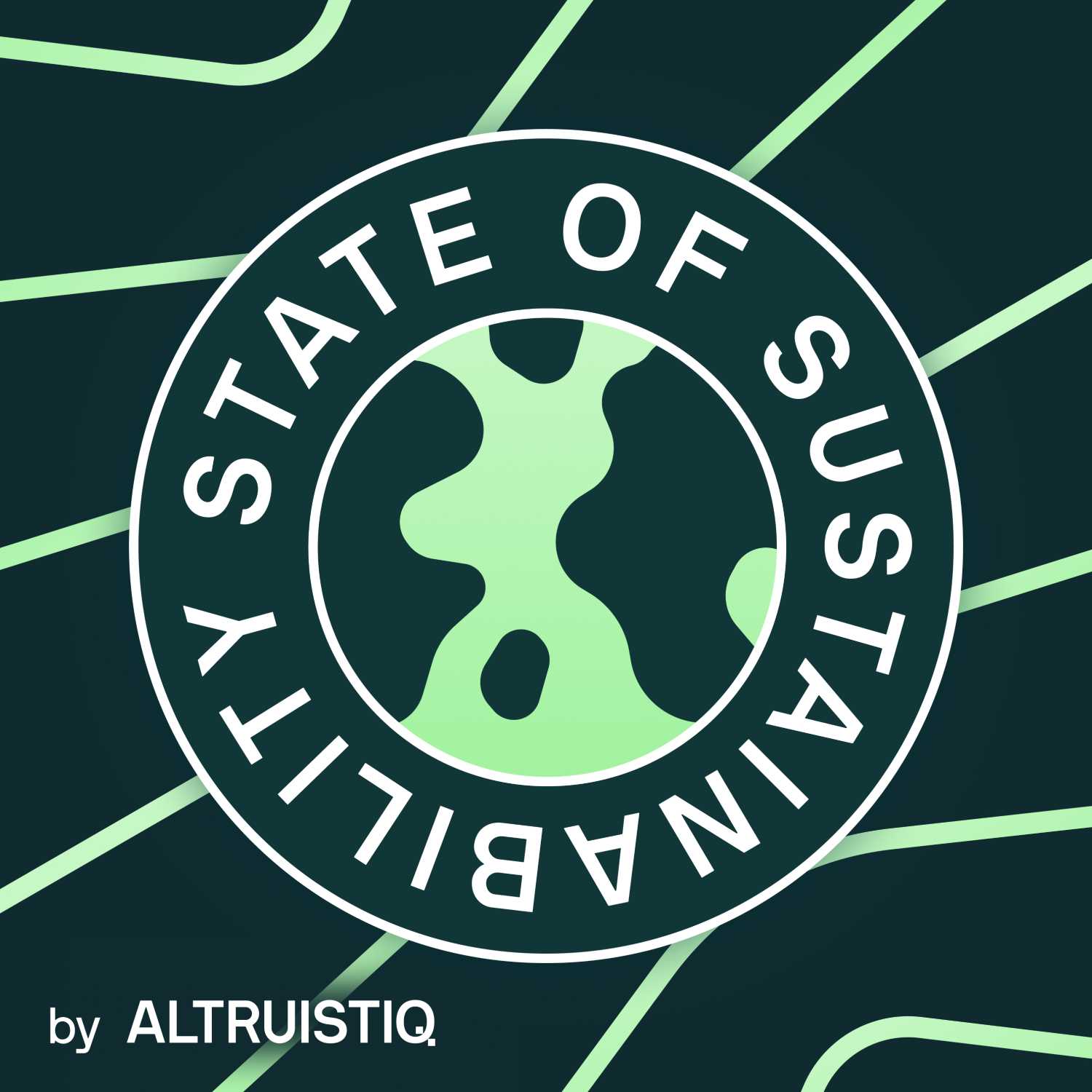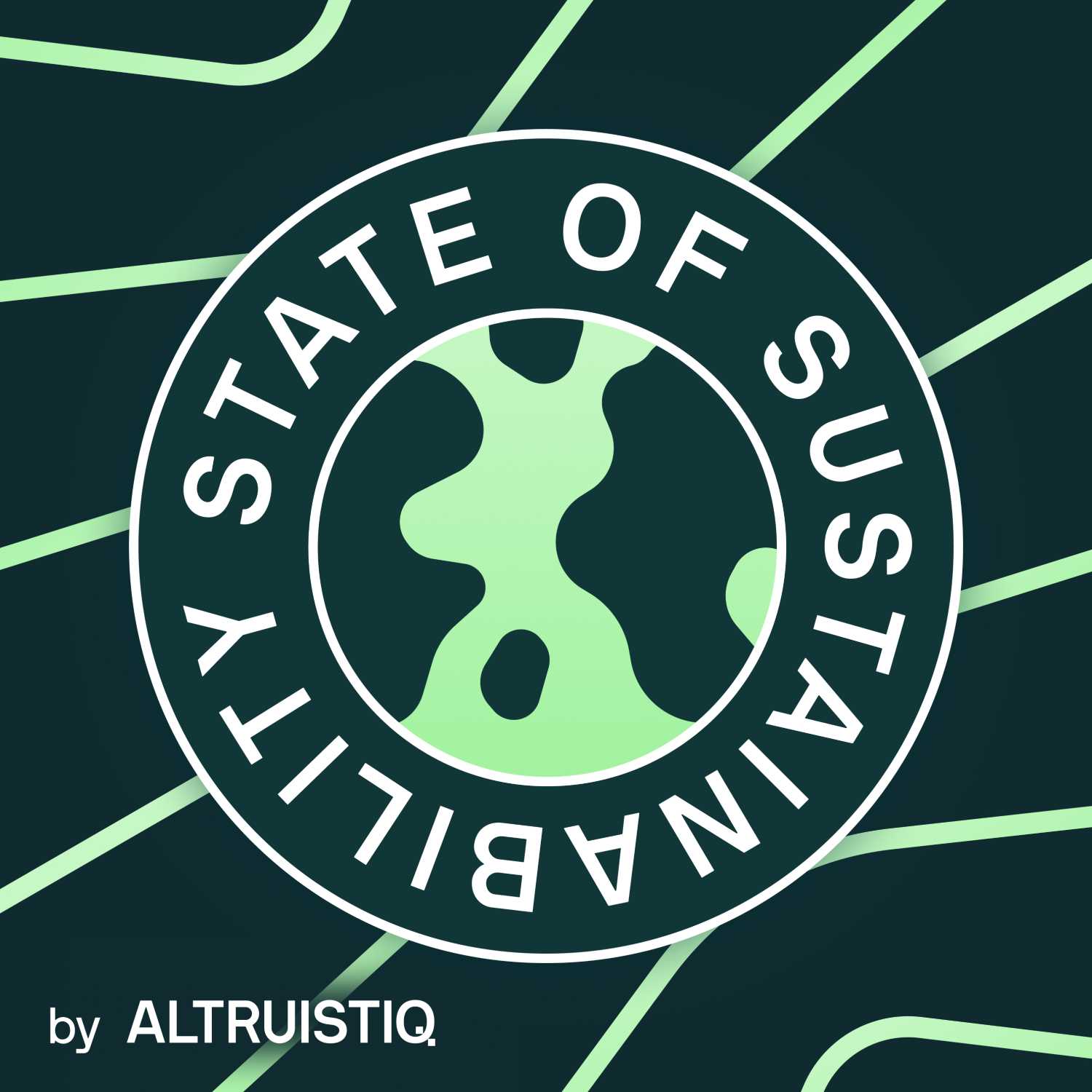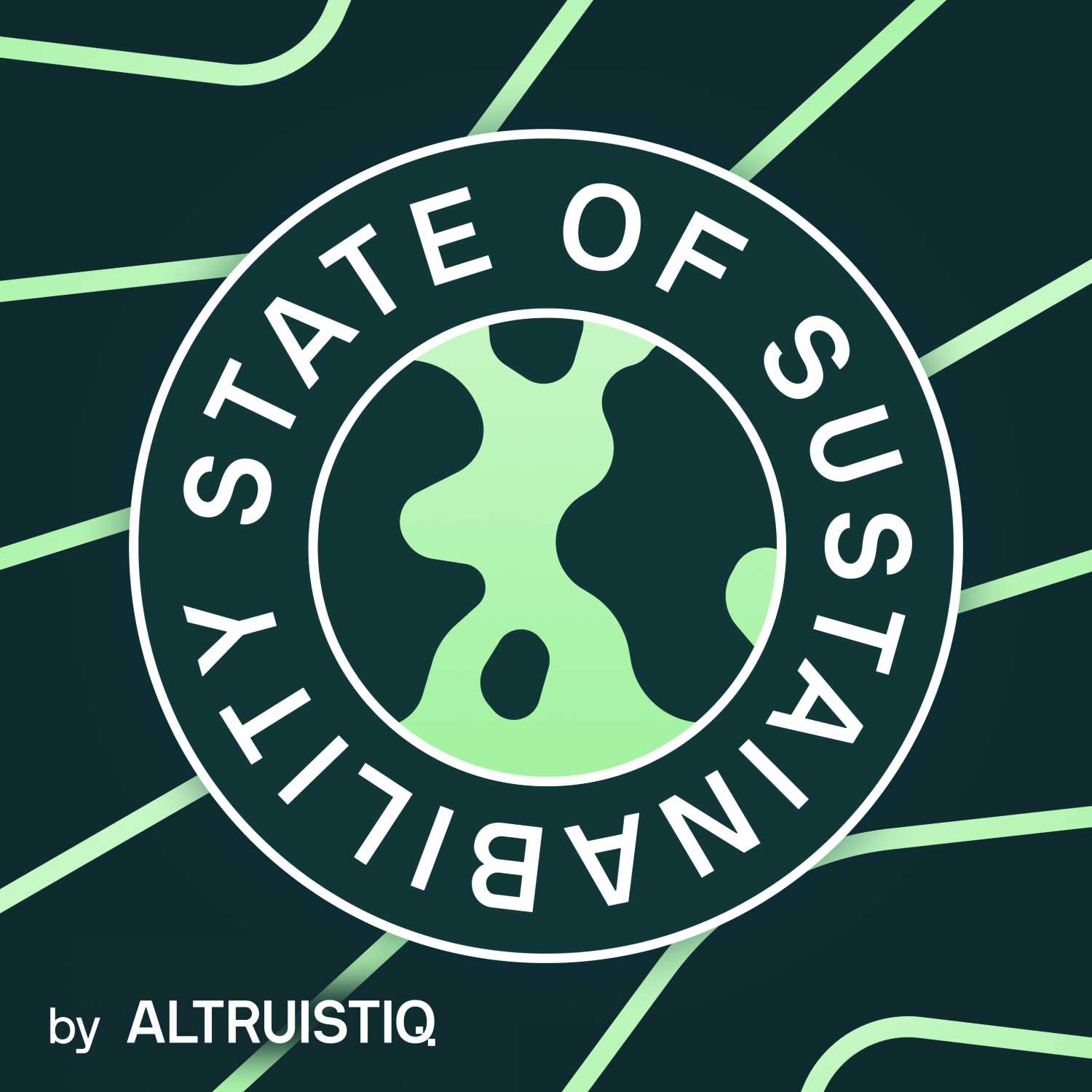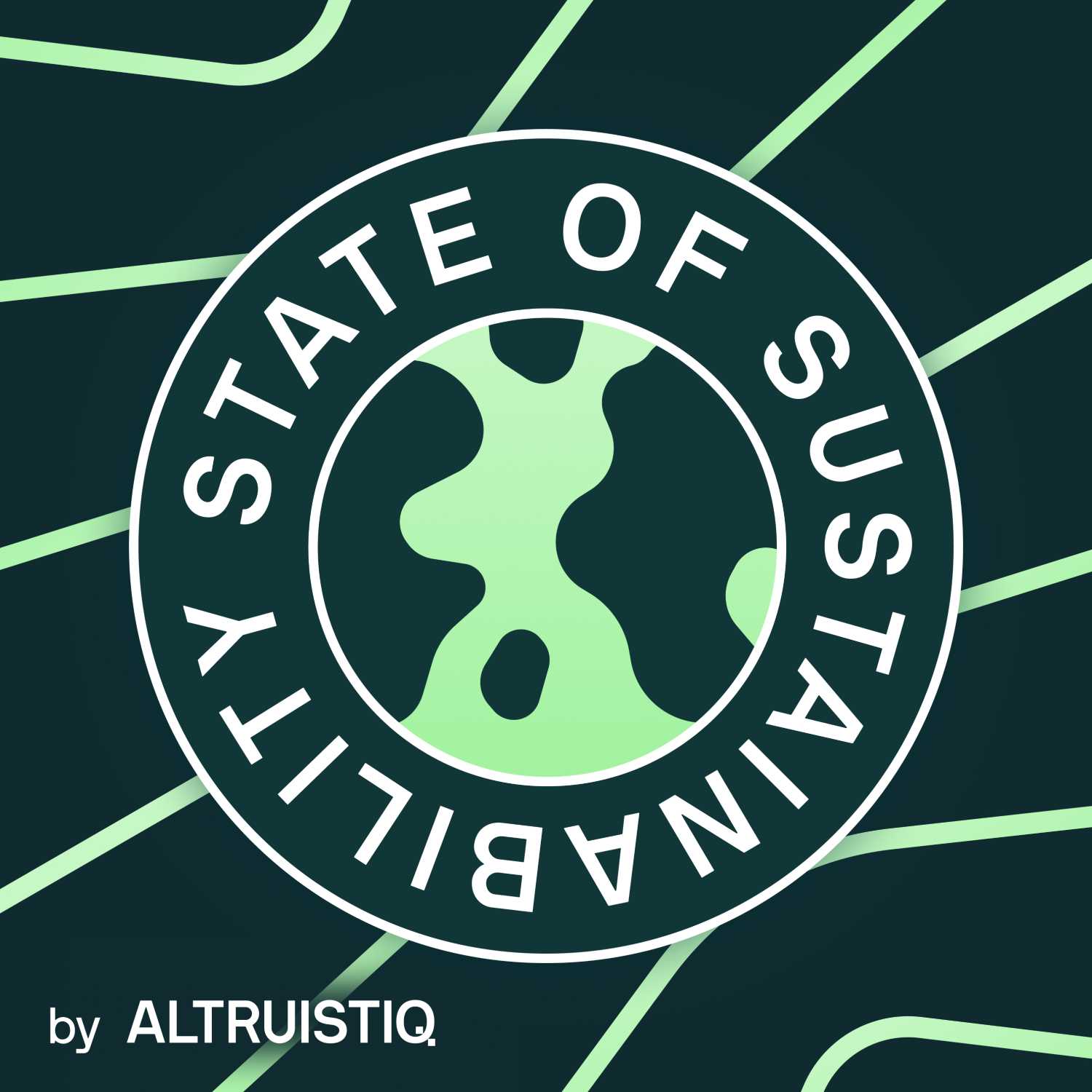Discover State of Sustainability
State of Sustainability

State of Sustainability
Author: State of Sustainability
Subscribed: 2Played: 91Subscribe
Share
© State of Sustainability
Description
A podcast for sustainability professionals by sustainability professionals.
Join Saif Hameed as he uncovers the secrets of success in this field, providing actionable insights, practical tips and insider knowledge to help you transform your sustainability strategy.
Linkedin: linkedin.com/in/saifhameed
24 Episodes
Reverse
Off the back of our flagship sustainability event in Chicago, where we hosted 70+ F&B sustainability professionals working on sustainability data challenges in the agri value chain, a few key trends emerged. In this episode, we dig into: - “Action first - reporting second”. - Qualities of the “best” kind of decarbonisation initiatives - Data transparency is very different between B2B vs B2C
How to make sure your circularity initiative is revenue-generating How to set a carbon costHow do you utilise carbon pricing when data in the supply chain at the product level is sparse?When is a carbon price most defensibleCarbon pricing success stories
Saif Hameed and Pedro Lafargue, Global Climate Action Manager at OFI discuss:The principles for a successful insetting projectThe level of data accuracy needed for compliance vs actionHow to track and account for carbon removals (when standardisation is lacking)Best practices for monetising carbon insetting projects
Market highlight:How the SEC’s climate disclosure ruling impacts your businessTopic deep dive: A playbook on how to: Build a strong business case for sustainabilityOptimise team set up to unlock resourcesBoost company-wide sustainability literacy and buy-in
NEW SEASON LAUNCH.This season will include the latest corporate sustainability market highlights followed by problem-solving deep dives on all flavours of challenges that sustainability practitioners face.In this episode, we cover:Market highlights:Corporate black sliding on climate pledgesThe Greenwashing clamp down and how to make water-tight claimsTopic deep dive: Effective sustainability data commsInternal communication and engagement tactics for sustainability data buy-inExternal comms: how to demonstrate progress to stakeholdersAny challenges that we've missed? Get in touch with content suggestions and we'll cover them off in our next episode.
In this episode, we discuss how to:Launch effective Farmer Reduction Plans: Lessons from McCain and InnocentPrepare for supply chain disruptions, drawing learnings from the recent cocoa crisisNavigate insetting challenges, specifically how to avoid competitors ‘free riding’ off your reduction initiativesMaximise the value of your insetsMake reductions work at farm level (multi year contracts)
We cover:The latest market highlights:They key themes across corporate sustainability reportsThe U-turn on CSDDD - is this even a bad thing?The Upskilling Procurement Playbook:How to embed sustainability into procurement BAUThe tools and training to enable procurementThe incentives on the tableResources:Webinar: How to Scale a Successful Supply Chain Program - www.altruistiq.com/events/how-to-scale-a-successful-supply-chain-program
We cover:Mission build fundamentalsHow to tailor your mission across a global marketThe big tech innovations to look out forThe benefits of building a meaningful mission.Recommendations:Book: The Long and Short of It, John KayeVideo: EV or Gas: What Pollutes More?
Description:This episode aims to set listeners up with a credible and sensible approach to sustainable data transformation, covering how to:- Prioritise data sets and manage against targets- Solve for digitisation, granularity, flexibility, and usability in your infrastructure build- Streamline interactions with other systems and organisations- Establish optimal relationships with tech teams and third-party providers.
Supplier engagement more often than not results in low response rates and unusable data. Sound familiar? This podcast sets to solve this by breaking down:What’s happening today: Mass surveying, “one platform rules them all” and an unrealistic push for “universal primary data”.Where we want to get to: Data you can actually use.How to get there: Supplier contracts, blended procurement models, strategic upskilling, secure supplier data exchange (PACT)Key learnings from the transition
A conversation with Henry Dimbleby and Saif Hameed at COP28, covering:Regenerative agriculture: what exactly regenerative agriculture means, how to fund it and how to implement itOptimising for supplier engagement and primary data useHow far corporate influence goes when it comes to on sustainability regulations, frameworks and standardsA roaming COP28 megaphone kicks in halfway through - bear with us.
Live from COP28. We unpack our key takeaways from COP28, specifically:Who’s here (and who’s not)What everyone is thinking, but not sayingWhere the real progress was madeReasons for optimismTune in to form your own opinion on COP28.
There’s a growing number of people in the corporate sustainability space that believe universal primary data (ie data gathered from every supplier) is the best way to accurately understand your emissions. After a few debates we wanted to unpack why we don't think this is the case. In this episode, we cover:Primary vs secondary data collection strategiesWhat primary and secondary data isWhy we believe the "hybrid approach" is most effectiveHow to implement a hybrid approach at scale
We cover how to build an effective sustainability team. We break this into two key areas:1. Team designCreate a clear strategy and visionIdentify the optimal structure and organisational set-up for your teamWhere to resource and unlock budget2. Roles and responsibilitiesDefine the different roles and responsibilities neededIdentify the skills and experience required for each roleFind and recruit the best talent
Charles Conn (long serving Chair of Patagonia) and Saif Hameed (CEO of Altruistiq) discuss effective sustainability governance, focusing on how to build consistency around purpose and mission. Points covered: - How to build a mission that is consistently sustainable- How data can be used to prop up the mission and focus of the organisation-How Patagonia has reinforced its mission with appropriate governance (e.g., buy-in, managing incentives)-How to leverage data to reinforce these incentives-The best approach for walking the line between green hushing and greenwashing-Understanding when your environmental data is "good enough" to act upon
How can food manufacturers ensure they have the right data infrastructure in place to go beyond carbon and support more ambitious sustainability objectives? This session will address some of the data infrastructure challenges that food manufacturers face such as data silos, system compatibility, scalability, real-time data accessibility, quality assurance, and integration with external systems. We will also explore how to apply learnings from emissions data to water and biodiversity strategies. The session will equip food manufacturers with strategies to enhance market differentiation, foster innovation, create resilience within complex supply chains and mitigate against reputational risk.With:- Saif Hameed, CEO of Altruistiq- Steff Kulis, Head of ESG Digital Transformation, Kraft Heinz- Andy Griffiths, Head of Sustainable Procurement, Diageo- Chris Shearlock, Sustainability Director for Europe, Thai Union
Live Q&A with Saif Hameed. Questions covered: 1.What is the average quality of emissions data today? When should someone actually be worried about their data quality?2.I'm looking to add additional headcount to my small sustainability team. What strategic first hires should I make?3.Do you have any tips for making the business case internally for headcount?4.What is the best way to set up a sustainability team? Centralise the function? Or embed sustainability professionals within other functions?If you have any sustainability-related questions that need answering, get in touch: sos@altruistiq.com
We cover how to generate value from better consumer engagement around sustainability. We break this into two pieces:Where to play: how to think about market segmentation and how to size the market opportunity.How to play: the strategies and approaches that work to effectively engage and generate value.
We’re going to talk about three closely related topics:- How to build a business case for sustainability change in your organisation.- The use of carbon pricing as a tool to prioritise business cases and align stakeholders.- Effective carbon pricing strategies, offering up a few shortcuts and insights to help sustainability professionals on this journey.
Live Q&A with Saif Hameed.Questions covered:1. ESG bonuses: Would you recommend a mix of qualitative and quantitative KPIs because some aspects will remain softer in their nature?2. We set an ambitious carbon target but had intended to meet a significant share of it through offsets. It now looks like that’s no longer popular. Do we need to change course?3. What is the benefit of insets vs. offsets?4. What do you think of the US government’s move into direct procurement of carbon credits?5. How should I amend my existing supplier agreements to promote the exchange of emissions data?6. For suppliers who aren't well informed on this agenda,, do you recommend beginning with value chain decarbonisation and risking a slow start? Or offsets? Or both?If you have a sustainability-related question that needs answering - get in touch: sos@altruistiq.com.Further readingInvestors warn ‘fluffy’ ESG metrics are being gamed to boost bonuses



